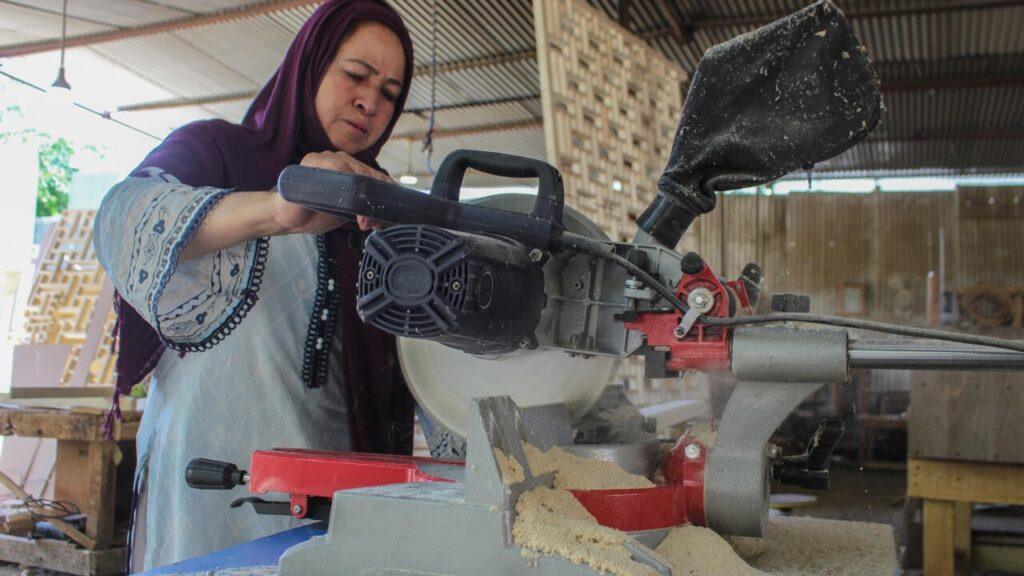Karimabad:
In a workshop full of sawdust located in the mountains of Karakoram, a team of chisels of carpentry of cabinets, and forges an unlikely race for them in Pakistan.
Women represent only a fraction of Pakistan’s formal workforce. But in a collection of sprinkled villages along the old silk route between China and Afghanistan, a business group led by women is challenging expectations.
“We have 22 employees and we have trained around 100 women,” said Bibi Amina, who launched his carpentry workshop in 2008 at the age of 30.
The population of Hunza Valley of around 50,000 extends through the mountains that abound with anraricoque, cherry, walnut and mulberry orchards.
AGA Khan opened a girls’ school in Hunza in 1946, starting an educational investment that brought the valley literacy rate to 97 percent for men and women. This rate far exceeds the average country of around 68 percent for men and 52.8 percent for women.
As a result, attitudes have changed, and women like Amina are taking expanded roles. “People thought women were there to wash the dishes and wash clothes,” A amina said about generation before her.
Trained by the Aga Khan Foundation to help renew the former Fort Altit, Amina then used her skills to start her own business. Their carpenters are currently working in a commission of a luxury hotel.
The coffee owner, Lal Shehzadi, headed the venture of restaurants for women in Hunza. She opened her coffee at the top of a sinuous main street to complement her husband’s small pension.
Sixteen years later, its simple configuration overlooking the valley has become a popular night tourist attraction. Traditional cuisine serves visitors, including Yak meat, apricot oil and rich mountain cheese.
“At first, I used to work alone,” he said. “Now, 11 people work here and most of them are women. And my children are also working here.”
After Shehzadi’s footsteps, Safina left her job to start her own restaurant a decade ago. “No one wanted to help me,” he said. Finally, he convinced family members to sell two cows and some goats for the money he needed to launch his business.
Now, she wins the equivalent of around $ 170 per month, more than 15 times her previous income.
The socioeconomic progress of women in Hunza compared to other rural areas of Pakistan has been promoted by three factors, according to Sultan Madan, head of the Karakoram area development organization and a local historian.
“The main reason is the very high literacy rate,” he told AFP, largely accrediting the Aga Khan Foundation for women’s financing training programs.
“Secondly, agriculture was the backbone of the economy in the region, but in Hunza the land was scarce and that was why women had to work in other sectors.”




